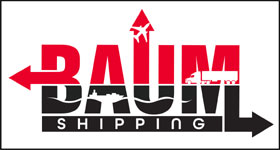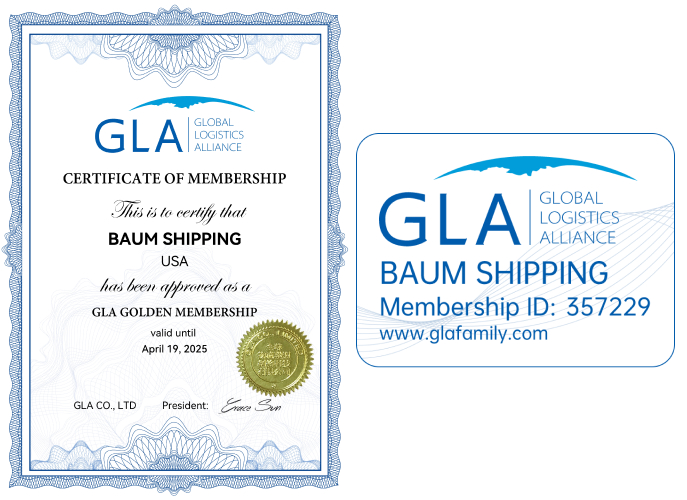Troubled Waters Overseas – Baum Shipping’s Response to Red Sea Shipping Challenges
January 23, 2024 Uncategorized
In recent times, the international shipping industry has faced unprecedented challenges, especially in the strategic yet turbulent waters of the Red Sea. At Baum Shipping, we understand the critical nature of these developments and their impact on global trade.
This blog post aims to shed light on the current situation in the Red Sea, its implications for shipping costs, and how Baum Shipping continues to offer reliable and affordable options for freight forwarding solutions amid these challenges.
The Current Situation in the Red Sea
The Red Sea, a critical maritime chokepoint, connects the Mediterranean Sea to the Indian Ocean via the Suez Canal and the Bab el-Mandeb Strait. It’s not just a crucial route for oil and commercial goods but also a strategic geopolitical flashpoint.
The ongoing conflict in Yemen has recently taken a perilous turn with the Houthis, a Yemeni rebel group, increasingly targeting U.S. cargo ships. These attacks, attributed to the complex political situation in Yemen and the group’s opposition to U.S. and allied intervention, have escalated tensions in these international waters.
United States & United Kingdom Responds
The response from the U.S. and the U.K. has been multifaceted. Both nations have increased their naval presence in the region to safeguard their commercial interests and ensure the safety of navigation. This move includes heightened surveillance and potentially escort missions to protect vulnerable shipping lanes. The U.S. Navy, alongside its allies, has been actively involved in securing these routes, recognizing the crucial role they play in global trade and energy supply.
However, the presence of military forces in the region, while reassuring to some extent, has not completely alleviated the risks. The unpredictability of these attacks and the potential for escalation remain a cause for concern among shipping companies and global trade stakeholders.
Impact on Shipping Costs
The escalating situation in the Red Sea is predicted to have a profound impact on shipping costs, a concern that reverberates through the entire global supply chain. The primary drivers of this increase are multifaceted, stemming from both the immediate need to navigate through high-risk areas and the broader economic implications of these security challenges. Shipping companies face a complex array of increased expenses, each contributing to the rising cost of global trade.
Key factors impacting shipping costs include:
– Increased Insurance Premiums: Operating in high-risk zones like the Red Sea has led to a steep rise in insurance costs for shipping companies, as insurers adjust to the heightened risk of attacks and hijackings.
– Longer Transit Times and Routes: To avoid conflict zones, ships often take longer routes, leading to increased fuel consumption and extended delivery times.
– Additional Security Measures: Hiring private security firms for armed escorts and vessel protection adds a significant expense to shipping operations.
– Operational Delays and Disruptions: The unpredictability of conflicts and attacks can cause unforeseen delays, disrupting schedules and adding to operational costs.
– Increased Fuel Costs: Longer detours mean higher fuel consumption, which is a substantial component of shipping costs.
– Supply Chain Disruptions: The instability in the region can lead to broader supply chain disruptions, affecting the availability and cost of goods.
These factors collectively contribute to a substantial increase in the cost of shipping goods through one of the world’s most vital maritime trade routes. This escalation in shipping expenses not only impacts the shipping industry but also has broader implications for global commerce, potentially leading to increased prices for a wide range of goods and contributing to economic inflation.
In response to these challenges, Baum Shipping is actively working to mitigate these costs and ensure reliable, efficient service for our clients, maintaining our commitment to affordability and excellence in freight forwarding.
Baum Shipping’s Commitment to Reliable and Affordable Shipping
In the face of these challenges, Baum Shipping remains steadfast in its commitment to providing top-tier domestic and international freight forwarding services. We understand the importance of keeping global trade flowing smoothly and are dedicated to navigating these troubled waters with expertise and resilience.
- Innovative Solutions: We are constantly exploring innovative routes and logistical strategies to bypass areas of conflict, ensuring the timely and safe delivery of goods.
- Cost-Effective Options: Baum Shipping is committed to offering competitive pricing, even as other companies face the need to increase their rates due to the heightened risks and costs associated with shipping in the Red Sea region.
- Unwavering Reliability: Our extensive network and experienced team ensure that we remain a reliable partner in your supply chain, capable of adapting to evolving global challenges.
Reach Out for Reliable International Freight Forwarding
The situation in the Red Sea is a reminder of the dynamic and sometimes unpredictable nature of international shipping. However, Baum Shipping is well-equipped to handle these challenges, offering peace of mind to our clients through reliable and cost-effective freight forwarding solutions.
We encourage our partners, vendors, and consumers to reach out to us by calling (800) 383-3157 or visiting our Contact Page to discuss how we can support your shipping needs during these challenging times.
Note: This blog post is intended for informational purposes only and reflects the situation as of the date of publication. Baum Shipping advises readers to seek the latest updates and professional advice regarding international shipping and geopolitical developments.
Baum Shipping | Domestic & International Freight Forwarding



